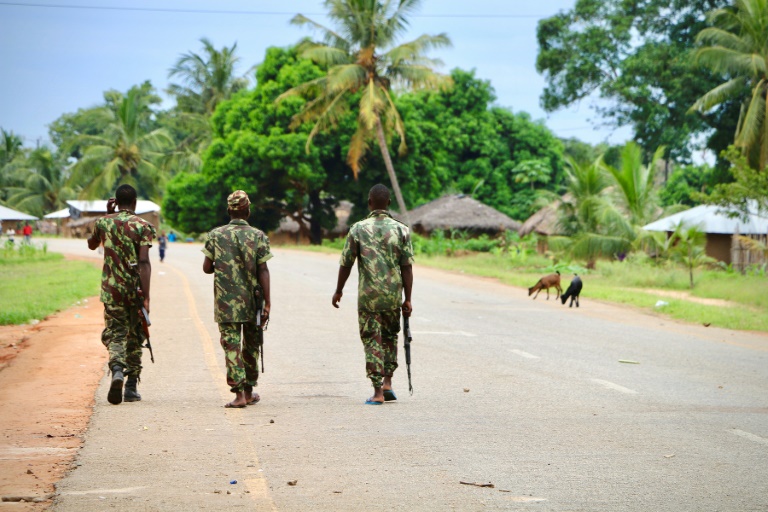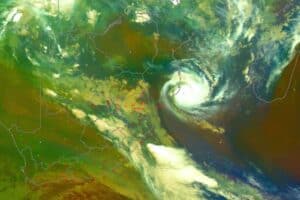Suspected jihadists killed five people using knives and machetes in an area that has been rocked by a spate of attacks blamed on radical Islamists, police said Thursday.

Cabo Delgado, a northern province expected to become the centre of a natural gas industry after several promising discoveries, has seen a string of assaults on security forces and civilians since October.
“There was one more attack [by] the same group that has been attacking the neighbouring villages, [it] attacked a village on Wednesday around 9:00 p.m. and killed five and destroyed houses and left running,” a police source told AFP.
The attackers targeted Namaluco village in the Quissanga district of Cabo Delgado.
Police reinforcements had been deployed to the area to step up security, but attacks have continued unabated.
Police believe the same group also hacked seven people to death in another village in the region on Tuesday after beheading 10 people in another settlement on May 27.
“The strategy of the group is to attack different villages over several days, confusing the strategic response of government forces,” added the police source.
Cabo Delgado police spokesman Augusto Guto said that “defence and security forces are on the ground hunting the attackers”.
The May 27 bloodshed occurred in two small villages close to the border with Tanzania and not far from Palma, a small town gearing up to be the country’s new natural gas hub in Cabo Delgado.

Mozambican troops patrol the streets of Mocimboa da Praia in Mozambique’s north, a marginalised region where radical Al-Shabaab-style ideology has found a receptive audience.
Jihadist attack
Wednesday’s murders occurred roughly 100 kilometres (62 miles) from Pemba, a town that is also an emerging tourist destination.
In October, armed men targeted a police station and military post in the regional town of Mocimboa da Praia in what was believed to be the first jihadist attack on the country.
Two officers died, and 14 attackers were killed.
The group, often described by locals and officials as “Al-Shabaab”, has no known link to the Somali jihadist group of the same name.
In the following weeks, at least 300 Muslims, including Tanzanians, were arrested and several mosques were forced to close.
The increase in attacks in the north of the country could pose serious issues for Mozambique, which holds general elections next year, and threatens to dash the hopes to cash in on the recently discovered gas reserves.
The vast gas deposits discovered off the shores of Palma could transform the impoverished country’s economy.
Experts predict that Mozambique could even become the world’s third-largest exporter of liquefied natural gas.
But the country’s north has largely been excluded from the economic growth of the last 20 years, and the region sees itself as a neglected outpost, creating fertile ground for radical Al-Shabaab-style ideology.
Mozambique last month passed an anti-terrorism law that punishes terror activity with prison sentences of more than 40 years.
Support Local Journalism
Add The Citizen as a Preferred Source on Google and follow us on Google News to see more of our trusted reporting in Google News and Top Stories.






